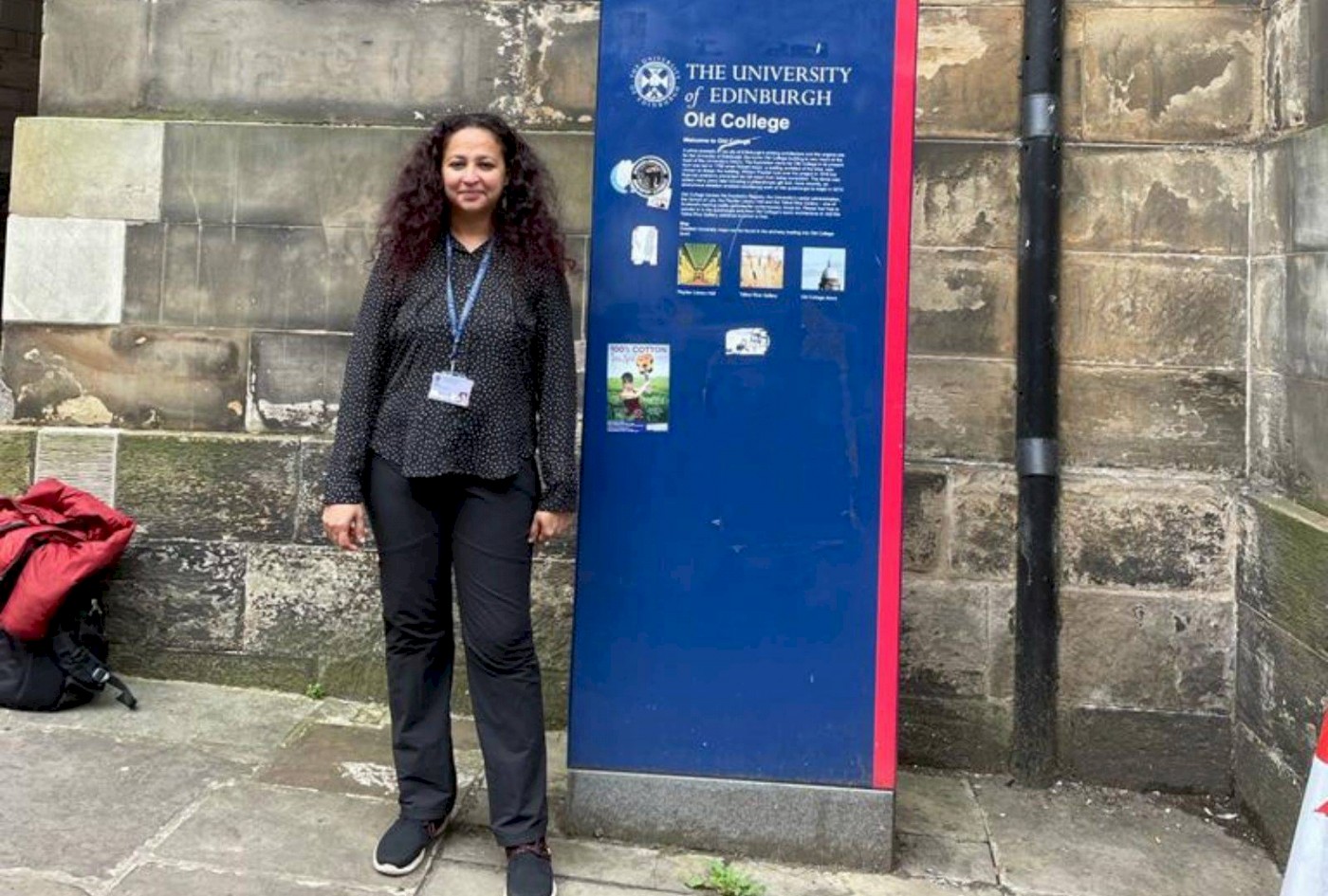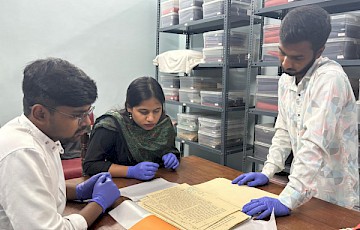26 August 2022
Tana Trivedi to Research on Kathiawad Narratives of 1920-30s as Postdoctoral Fellow at the University of Edinburgh

Tana Trivedi, Lecturer at the Amrut Mody School of Management, is currently at the Institute of Advanced Studies in the Humanities (IASH) at the University of Edinburgh as a CSMCH-IASH Visiting Postdoctoral Fellow in Modern and Contemporary History. The six-month postdoctoral fellowship (August 2022-February 2023) offered to her will facilitate her ongoing research on the Princely States of Kathiawad to engage in an active archival interpretation that will construct a narrative of the post-colonial Indian nation-state from the perspective of the Princely States. Through the project titled "The Counterfactual Republic: Towards revisiting the 'Deshi Rajyas' of Kathiawad”, she will revisit existing historical Gujarati journals and look anew at the series of negotiations that took place within the princely nation-states of Kathiawad-Saurashtra, a politically, socially, and culturally significant region of the Indian subcontinent, especially during the early 20th century.
"The objective of my research project is to examine the existing archives of the princely states of Kathiawad/Saurashtra from the early 20th century, especially focussing on the political discussions chronicled in the vernacular journal, “Deshi Rajya”. Published by Jayantilal Morarji Mehta from Nadiad, this journal claimed to be ‘The Only Monthly discussing questions pertaining to Indian States From A Constructive Point of View’. Published for over a decade between 1928-1940, the journal chronicles some significant perspectives about constitutional reforms and nation building from a wide range of contributors belonging to the princely states of India,” says Professor Trivedi.
Professor Trivedi is also the Academic Advisor for the Pattani Archives, an ongoing project in archiving, digitising, and preserving the family archives of the erstwhile diwan of Bhavnagar State of Gujarat. The research holds significance as a cultural and social decolonisation project involving a radical dismantling of the prevailing euro-centric historical discourses to make way for inclusive and diverse voices from different corners of the world. Her endeavour, therefore, is not a literal translation of the Gujarati vernacular journals such as the "Deshi Rajya" into English; instead, it is to facilitate a reading that stems from a personal response to the non-inclusivity of Gujarati historical accounts in the larger story of a nation. An attempt at creatively interpreting bi-lingual historiography offers a window to a new world of nation-building exercises not included in conventional colonial discourses.



